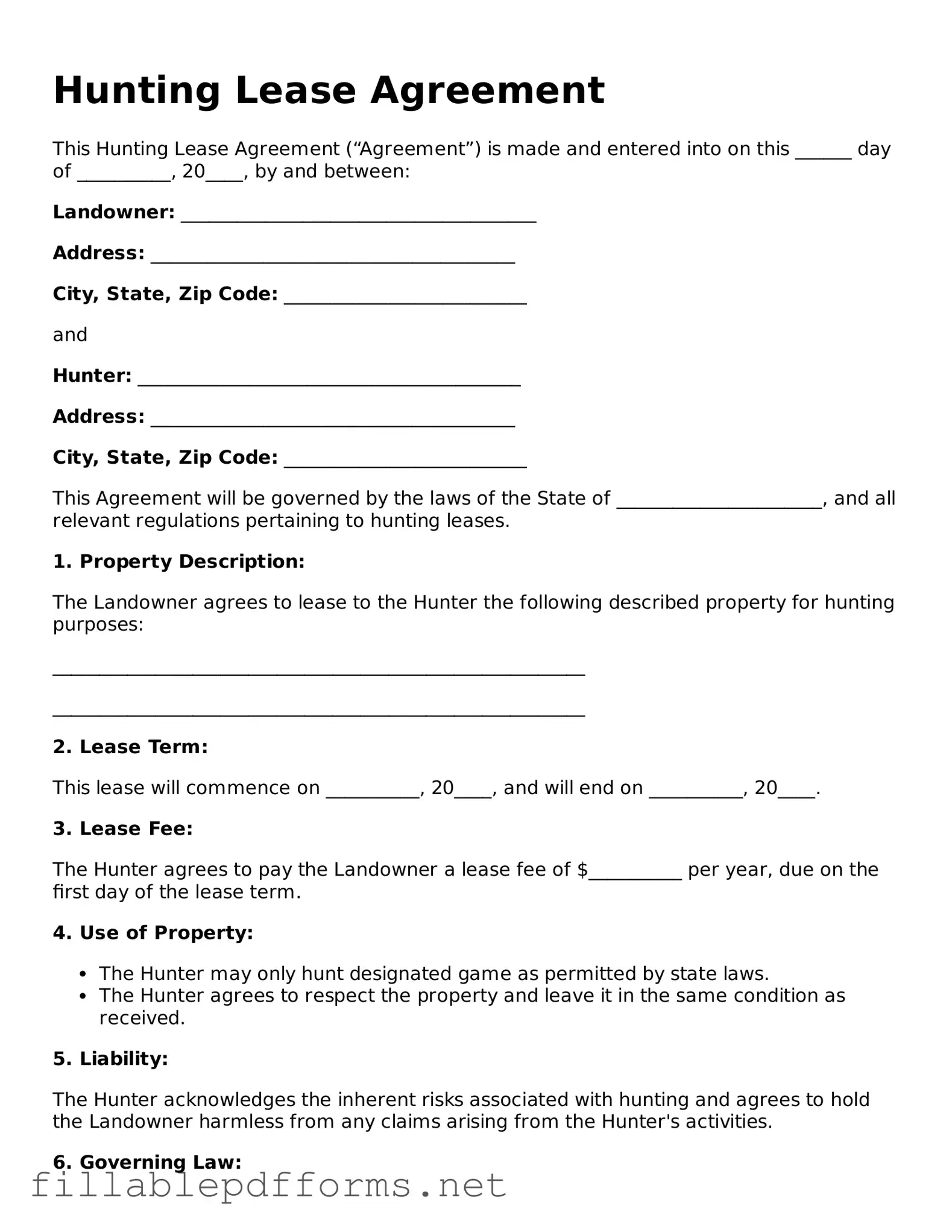Blank Hunting Lease Agreement Template
A Hunting Lease Agreement is a legally binding document that outlines the terms under which a landowner allows individuals or groups to hunt on their property. This agreement specifies important details such as the duration of the lease, payment terms, and rules governing hunting activities. Understanding this form is essential for both landowners and hunters to ensure a clear and mutually beneficial arrangement.
Launch Editor Here

Blank Hunting Lease Agreement Template
Launch Editor Here

Launch Editor Here
or
▼ Hunting Lease Agreement PDF
Almost there — finish the form
Complete Hunting Lease Agreement online fast — no printing, no scanning.